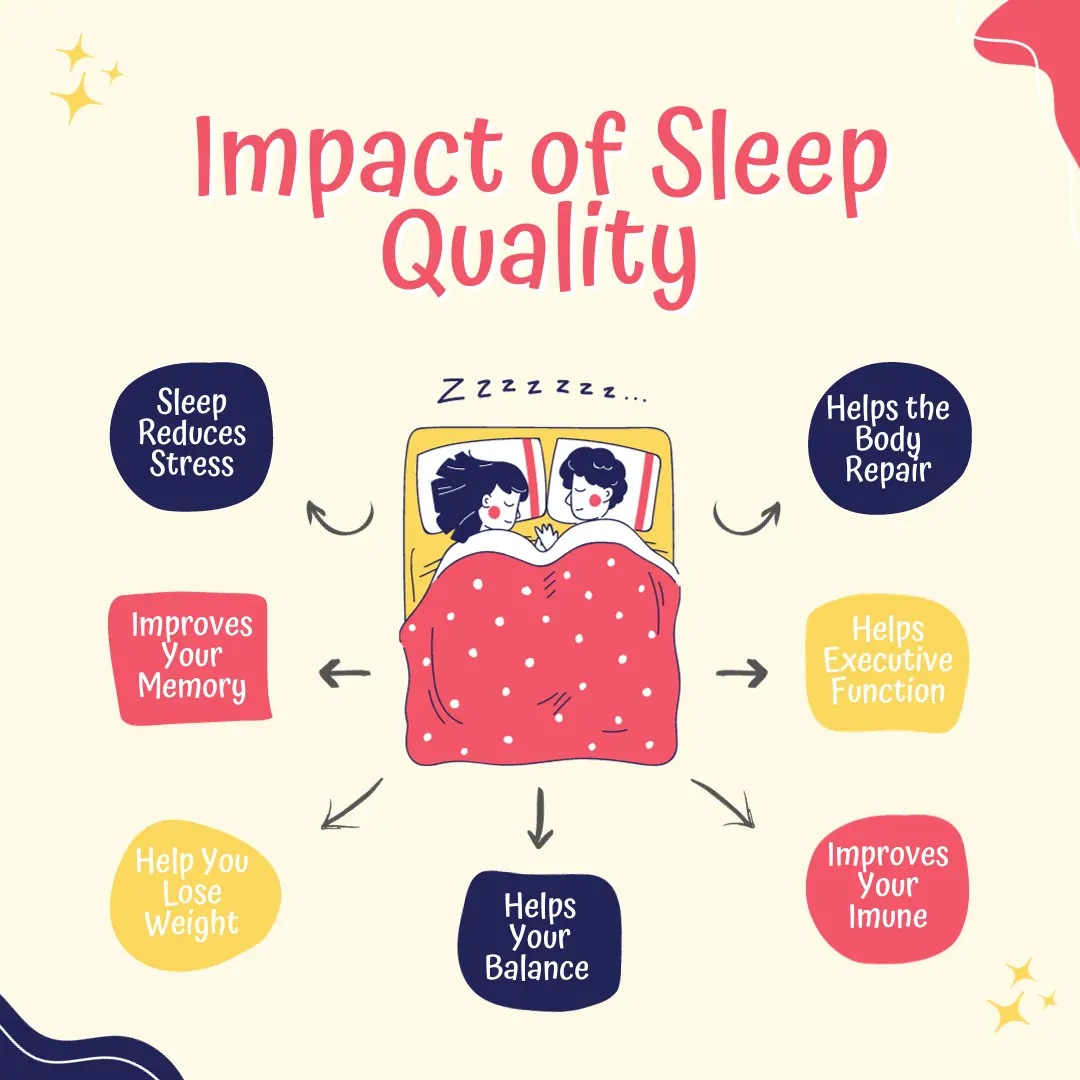Looking for Effect Of Sleep On Academic Performance, is an essential component of cognitive performance and crucial for academic success. According to an article published in Psychology Today, poor sleep quality and sleepiness can affect memory, attention, processing, sequential thinking, and creativity, all of which are important for learning and academic success. Lack of sleep can also impact daytime performance, leading to lower grade point averages and higher dropout rates. Therefore, students should try to maintain a consistent and sufficient sleep schedule to improve their academic performance.
The Impact of Sleep Quality and Quantity on Academic Success
A study published in the journal Sleep and Biological Rhythms found that insufficient sleep and poor sleep quality are common during times of high academic demands, which negatively impact academic performance. The study also found that college students slept less than expected on weekdays and weekends, and that lack of sleep during the week was associated with poorer perceptions of their academic performance.
with compromised academic performance in children and adults. Reduced overnight sleep or altered sleep patterns have been associated with severe drowsiness and failure in academic success.

Sleep Deprivation: A Silent Academic Killer?
Sleep deprivation is a serious issue that can have a negative impact on academic performance. According to a blog post by ALMA.care, several studies have shown that good sleep is essential for proper brain function. Even moderate sleep deprivation can impair cognitive and motor brain performance equivalent to legally prescribed levels of alcohol intoxication.
A study published in the journal Sleep and Biological Rhythms found that during periods of greater academic demand, insufficient and poor quality sleep is commonly observed, which negatively affects academic performance. The study also found that university students slept less than desired, both on weekdays and weekends, and the sleep debt during the week was associated with a worse perception of their academic performance.
Another blog post by Arootah states that sleep deprivation could be a silent killer, and it is important to remember that rest is just as impactful to your health as diet and exercise.
The Science Behind Sleep and Cognitive Function?
Sleep is essential for effective cognitive functioning. It supports numerous aspects of thinking including memory, problem-solving, creativity, emotional processing, and judgment. Sleep helps consolidate long-term memory.
The brain activity levels fluctuate during each stage of sleep — including both rapid eye movement (REM) and non-REM (NREM) sleep — and evidence increasingly suggests that sleep enhances most types of cognitive function.
If you want to learn more about the science of sleep, check out this article by Sleep Foundation. It provides an introduction to the key details about what happens to the mind and body during sleep. The article explains how sleep is connected to numerous elements of physical, emotional, and mental health and provides insights about how people can get better sleep.
Strategies for Improving Sleep Habits Among Students?
Here are some strategies and tips for students to improve their sleep habits:
- Experiment with naps.
- Fine-tune your sleeping environment by avoiding noise, light, excessive heat or cold, drafts, air that’s too humid or too dry.
- Keep your clock out of sight to prevent clock-watching.
- Maintain a regular sleep-wake schedule.
- Make your bedroom a comfortable sleep environment.
- Establish a calming pre-sleep routine.
- Keep a consistent routine for meals, exercise, and other activities.
Real-World Success Stories: How Adequate Sleep Transformed Academic Performance?
Adequate sleep is a crucial factor in academic performance. According to a study by Brigham and Women’s Hospital, students who had more regular sleep patterns had better average school grades. Another study by William E Kelly, Kathryn E Kelly and Robert C Clanton found that people who slept for nine hours or more in a 24-hour period had much higher GPAs than those who slept for less than six hours in the same time period.
It’s important to note that irregular sleep cycles can seriously impact academic performance as well as mental and physical health. Therefore, it’s advisable to maintain a regular sleep schedule and get at least 7-9 hours of sleep every night.
In Conclusion Of Effect Of Sleep On Academic Performance
Sleep is an essential component of optimal cognitive performance. According to a Psychology Today article, poor sleep quality and sleepiness can affect university students’ academic performance and daytime functioning. Therefore, students should try to maintain a consistent and sufficient sleep schedule to enhance their academic performance

